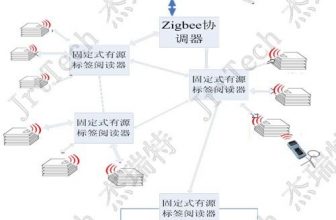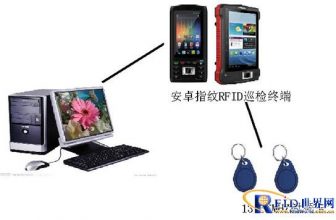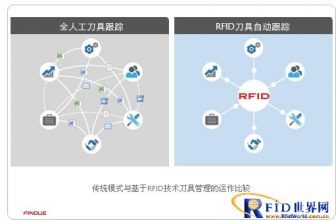
RFID technology helps safer management of hazardous chemical gas cylinders
[ad_1]
RFID technology allows hazardous chemical gas cylinders to automatically collect and record the status of each link of hazardous chemical gas cylinders in the circulation, filling and inspection links, ensuring the normal and safe use of gas cylinder management. So as to realize the visual management of cylinder information. The management of hazardous chemicals is of great significance, increasing and improving the management level. RFID technology helps safer management of hazardous chemical gas cylinders.
At present, the safety management of the gas cylinder filling industry is relatively difficult. The number of safety gas cylinders is large, the fluidity is large, the distribution is wide, and the management is not in place, which cannot meet the real safety management requirements. There are many problems such as unknown number of various gas cylinders, unclear safety status, and unclear property rights information. Due to the existence of weak safety awareness, gas cylinders are mixed and charged randomly for self-interest, a large number of overdue, unregistered gas cylinders are circulating in the society, and gas cylinder phenomena occur from time to time. It is difficult for related companies to implement safety responsibilities. Cause a great safety hazard.
RFID technology hazardous chemical gas cylinder management process
1) Install an RFID electronic tag on each gas cylinder, and each RFID electronic tag has a unique ID; and it is numbered and registered, and each hazardous chemical gas cylinder is given a unique identification code, The installation unit creates computer data files for all the gas cylinders of the unit.
2) RFID electronic tags record the property information, usage information, inspection information, filling information, etc. of the gas cylinder;
3) During the circulation process of gas cylinders, by reading the property information recorded in the electronic tag, the fixed-point filling is ensured; according to the inspection and manufacturing information recorded in the electronic tag, regular inspection and expiry scrapping are guaranteed.
System functions
1) Supervision and management of hazardous chemical gas cylinders
Establish a comprehensive gas cylinder information database including all gas cylinder history files, gas cylinder filling records and periodic inspection data in the relevant quality and technical supervision departments. The supervision department can grasp the real-time dynamic data information of the filling unit and the inspection unit, can analyze and judge the actual situation of the gas cylinder safety work in the area under its jurisdiction and the unit under its jurisdiction, and perform the safety status of the filling unit and the inspection quality of the inspection unit. After an assessment, if any safety hazard is found, it can be stopped in time.
2) Cylinder filling management
The system has established a gas cylinder archive history information database inside the filling unit. Since the electronic tag is used to register each gas cylinder, it is easy to automatically identify and automatically identify the gas cylinders by using a handheld reader during on-site operation. Register. The handheld reader is preset with relevant characteristic information of each gas cylinder. In all relevant links of the on-site operation, the handheld reader will automatically process, analyze and judge the relevant information, and prompt or prompt the operator for abnormal information. The alarm prevents errors that are easy to occur in manual operation judgment and recording, reduces the difficulty and workload of the operators, and realizes the automation and informationization of gas cylinder safety management.
3) Cylinder inspection management
Use computer-aided technology to input, calculate and manage the relevant information of gas cylinder inspection, including the following contents: input of inspection records, automatic calculation of inspection data, and report of inspection information.
4) Accident traceability
The RFID electronic tag records the information of the entire process to ensure completeness and non-repudiation, so that once a safety incident occurs, the information of the filling personnel or inspection personnel can be viewed through the RFID tag information, and the person responsible for the accident can be easily traced. Provide evidence for the handling of incidents, avoid accidents, and avoid illegal operations.
5) Validity period reminder
Regular inspection, scrapped when due. Cylinders have certain usage rights. If they exceed the validity period, an alarm will be issued to remind them of the validity period. To avoid some unscrupulous personnel transforming it indiscriminately and re-painting, the state will recycle the RFID electronic tag after it has passed the use authority. Effectively avoid the explosion accident caused by the gas cylinder has passed the use authority. The safety management of hazardous chemical gas cylinders is guaranteed.
6) Improve work efficiency and improve management level
Using RFID non-contact radio frequency identification to manage hazardous chemical gas cylinders can reduce labor intensity and labor costs. Avoid a large number of accidents and work omissions caused by human negligence and force majeure. Establish an effective internal management system for information enterprises, prevent and reduce the management accidents of hazardous chemical gas cylinders, and improve the safety awareness, sense of responsibility and work efficiency of relevant staff. As a whole, the water product management of the enterprise has been improved.
RFID technology recognizes objects and realizes intelligent recognition and correlation functions. RFID has very important application prospects in automatic identification and item logistics management. RFID technology plays a very important role in realizing “full life cycle” and “full process” information tracking and management in the management of gas cylinders, and plays a very important role in the safety management and monitoring of the entire life cycle from filling, use, and inspection. The application of RFID technology in the management of gas cylinders protects gas safety.
[ad_2]






